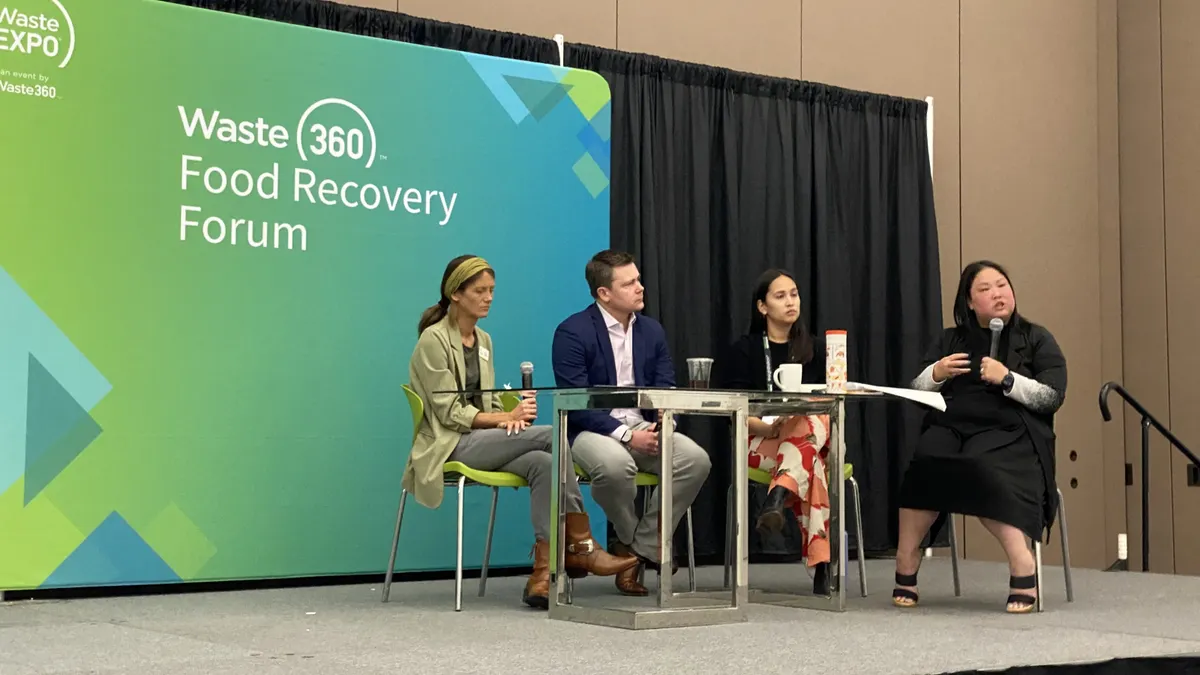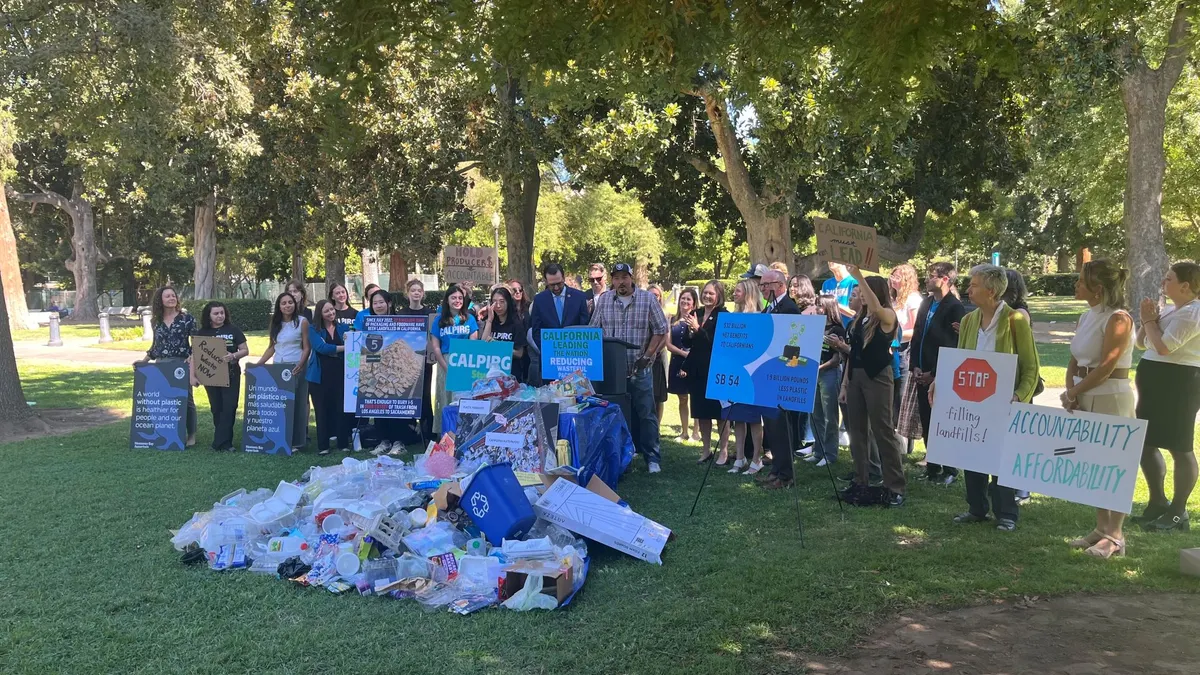State legislators continue to introduce more legislation aimed at cutting food waste. The bills look to address emissions and preserve disposal capacity for waste that can't be recycled or reused.
Those policy proposals take a range of approaches. Some aim to outright ban the disposal of organic waste that businesses or residents generate. Others seek to prevent wasted food by simplifying food date labeling to make it easier for consumers to understand. And others set waste reduction targets and require studies to identify best strategies.
This variety of tactics can help regulators as they tackle the issue across the food supply chain, said Chris Thomas, vice president of public affairs for organics recycler Divert, at a WasteExpo panel on May 7.
“We’re still just too much in early innings to say which policies are working,” Thomas said. “We’re eventually going to coalesce around really good ideas, but we're just not there yet.”
Divert, in collaboration with the Zero Food Waste Coalition, tracks organic waste bills. The team found that in 2025, 31 states have pending bills that would promote food recovery in some form, 27 have bills that would institute or modify an existing organic waste ban, 12 have bills that would simplify date labeling and two have bills that could incentivize procurement of organic waste byproducts.
Nina Sevilla, a food waste program advocate at the Natural Resources Defense Council, said nonprofits can play an important role in education and outreach when new organic waste policies are introduced. NRDC is also part of the Zero Food Waste Coalition and has developed a state policy toolkit to help legislators write laws that minimize unintended consequences, according to Sevilla.
“Policy moves slowly, and what the coalition is trying to do is develop tools that can help accelerate policy,” Sevilla said. “There's no silver bullet. But on the flip side of that, everything can help.”
For states that do have laws on the books, enforcing organic waste policy still requires a lot of collaboration, said Ashlee Yee, SB 1383 branch chief at California regulator CalRecycle.
CalRecycle's SB 1383 enforcement division has roughly one representative for every 10 jurisdictions, Yee said. They’re assigned to help each find a path to comply with the state's organic waste rules, which include a mandate to divert organic waste from homes and businesses and procure organic waste byproducts like compost and mulch to support a circular economy.
Yee said working to get jurisdictions into compliance with SB 1383 has been tricky, in part because the law represents an unfunded mandate to change city-level organic waste policy. But she stressed that the flexibility currently built into the program, including delayed timelines for rural communities and options for jurisdictions that are out of compliance, are helping regulators achieve their goal.
“I think maybe everybody would prefer just to be told what to do, but I think that will add more costs on the back end,” Yee said.
She also noted there are signs the program is working — the state set a goal to divert 20% of edible food to people in need by 2025, and Yee said the state is at 94% of that total.
California's organic waste rules remain the most comprehensive in the country, Yee said, noting the state is still working to bring stakeholders together. She said the state is still missing needed organic waste processing capacity, and processors are dealing with increased organic waste contamination as residents learn new requirements.
Divert’s Thomas also noted that stakeholders who support organic waste reduction are still identifying the ideal sequence of policies, like putting in place requirements to divert organic waste to beneficial uses like composting or anaerobic digestion before requiring jurisdictions to procure the resulting products.
“States are still kind of wrapping their heads around how it can be implemented and how it's going to impact certain waste generators,” Thomas said. “Any time there's any kind of new policy being considered across the country, there's lots of new ideas to try.”
Disclosure: Informa, which owns a controlling stake in Informa TechTarget, the publisher behind Waste Dive, is also the owner of WasteExpo. Informa has no influence over Waste Dive’s coverage.



















